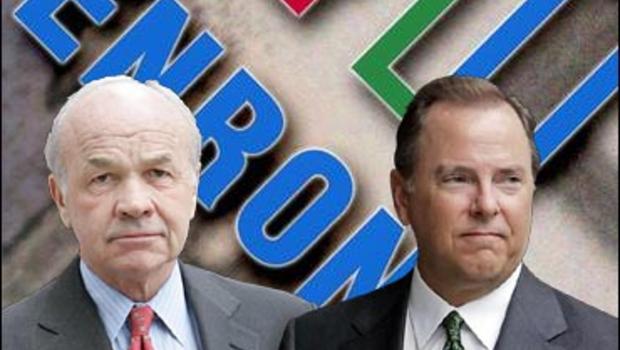 To the surprise of no one who has ever tried a case before U.S. District Judge Sim Lake, a jury was empaneled yesterday (NY Times article here) in the Enron Task Force’s legacy case against former key Enron executives Ken Lay and Jeff Skilling, which means that opening arguments will proceed in the trial this morning.
To the surprise of no one who has ever tried a case before U.S. District Judge Sim Lake, a jury was empaneled yesterday (NY Times article here) in the Enron Task Force’s legacy case against former key Enron executives Ken Lay and Jeff Skilling, which means that opening arguments will proceed in the trial this morning.
Judge Lake has a way of keeping matters on schedule.
Opening arguments are always anxiously anticipated in high-profile cases such as this, particularly in view of the fact that many of the preliminary matters — such as jury selection — are downright boring.
Contrary to popular belief, jurors do not often make up their minds during either opening or closing arguments, but it remains reasonably clear that jurors often form during opening arguments the framework within which they consider the evidence that is presented during the trial.
Thus, the goal of opening arguments is to establish broad themes that resonate with the jurors. Leave the details for later.
In this case, the prosecution clearly has the advantage in opening arguments because of “the presumption” in business cases. No, that’s not the presumption of innocence. Rather, it’s the presumption that most lay people have that at least some criminal conduct is involved in any business enterprise that collapses, particularly one that does so in such spectacular style as Enron.
The Enron Task Force has played up the presumption effectively in its public relations campaign and in its previous Enron-related prosecutions, so the Task Force prosecutors will hammer the jurors with that presumption throughout their opening argument.
Conversely, one of the primary goals of defense attorneys Dan Petrocelli (Skilling) and Mike Ramsey (Lay) during opening argument will be to challenge the validity of the presumption so that the jurors can form a framework that views the presumption with skepticism while evaluating the evidence that is presented during the trial.
Although the prosecution has the easier task during opening arguments, its job gets much tougher once it has to put on its case.
The Task Force has been much more successful in bludgeoning plea bargains out of former Enron executives than actually obtaining convictions in court.
The only “successful” Enron-related trial for the Task Force to date has been the trial of Nigerian Barge case, which was a narrow trial of a specific transaction. Even then, one of the two Enron executives who were prosecuted in that case was acquitted, and the conviction of the Merrill Lynch executives in that case was anything but a clear-cut victory for the Task Force.
In comparison, in the two other Enron-related trials — the Arthur Andersen case and the Enron Broadband case — the prosecution alleged broad conspiracies and amorphous charges, and both cases ended disastrously for the Task Force.
Inasmuch as the charges in the Lay-Skilling trial have much more in common with the Andersen and Broadband cases than the Nigerian Barge case, the prosecution has been attempting to shift its strategy and simplify its case against Lay and Skilling during the weeks preceding the trial.
Nevertheless, it remains unclear whether the Task Force will be successful in that approach, particularly when a good part of its case against Lay and Skilling will be based on testimony of impeachable witnesses who have copped pleas and other statements that may not even get into evidence based on how Judge Lake rules on the key evidentiary issue in the case.
Thus, expect a lot of talk today about the presumption of criminal conduct in business collapse cases from the prosecution and broad themes challenging that presumption from the defense.
Frameworks may be built today, but the tougher work of actually filling those frameworks with substance is what will, in the end, determine which side succeeds or fails during this trial.

Enron trial: And they’re off!
Gads. I can tell that it’s going to be impossible to keep up with all the Skilling/Lay trial happenings. Opening…
Enron trial: And they’re off!
Gads. I can tell that it’s going to be impossible to keep up with all the Skilling/Lay trial happenings. Opening…